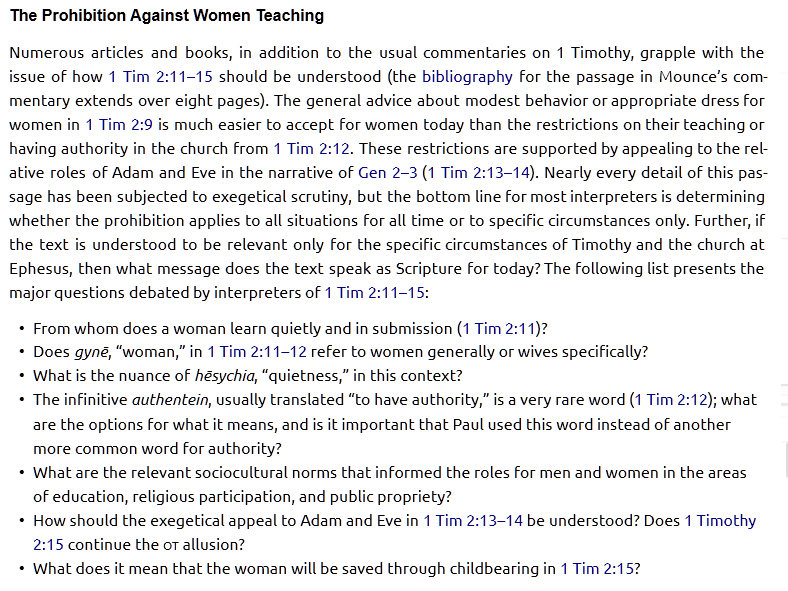Three major theological issues addressed in the Pastoral Letters still affect the church today: women in ministry, church leadership, and the inspiration of Scripture.
When I was in ministry, I hoped people wouldn’t bring up these controversial issues because I never felt ready to explain them “on the spot.” I didn’t intentionally avoid complicated and controversial matters; I just needed time to figure them out on my own first. That time never came—until I sat down to review all the relevant material to write the Lexham Bible Guide: Paul’s Letters Collection on 1 Timothy, 2 Timothy, and Titus.
I didn’t realize how complex the exegesis of 1 Tim. 2:11–15 was until I’d spent a week writing nearly 4,000 words on the subject. (That’s roughly equivalent to a 15-page paper, double-spaced, in 12-point Times New Roman—I had to write only a handful of those in college and grad school.) With the Lexham Bible Guide on 1 Timothy now available, what took me a week to write should take you just 30 minutes to read. For comparison, it would take far longer to read Towner’s work on 1 Tim. 2:8–15 (NICNT, pp. 190–239), 50 pages that focus primarily on background issues and the interpretation of 1 Tim. 2:11–12.
Interpreting Paul’s 1 Timothy
In writing this volume of the Lexham Bible Guides, I discovered that nearly every Greek word in those two verses was open to interpretation, including gynē (“woman” or “wife”?), hēsychia (“total silence” or “polite attention”?), and authentein (“to have authority over” . . . but does that mean misusing authority, or just having authority?). Putting aside the discussion about whether Paul authored this letter, the ongoing debate over the possible nuances of meaning revolves around one essential question: Does this passage apply to all believers for all time, or only to specific situations like those Timothy faced at Ephesus? There are no easy answers, and sincere Christian men and women have put forward many thoughtful explanations accounting for various exegetical, social, historical, and theological aspects.
My discussion in this volume of the Lexham Bible Guides addresses the seven major questions that consume the attention of most interpreters. I’ve provided a basic overview of these essential questions and represented the major options for answering them.
Equipping yourself for the tough questions
Instead of dreading a conversation with a church member over this issue, you can feel equipped to explain the text and the primary reasons for debate. The Lexham Bible Guides were designed precisely with this goal in mind—providing you with a time-saving, well-researched introduction to major exegetical and theological issues.
Preparing for regular teaching and preaching can be challenging. You may have the commentaries or access to articles and books, but how much time do you have to wade through them? The Lexham Bible Guides: Paul’s Letters Collection will save you countless hours in sermon and teaching preparation and give you the confidence to address the controversial issues.
Order the Paul’s Letters Collection today!





